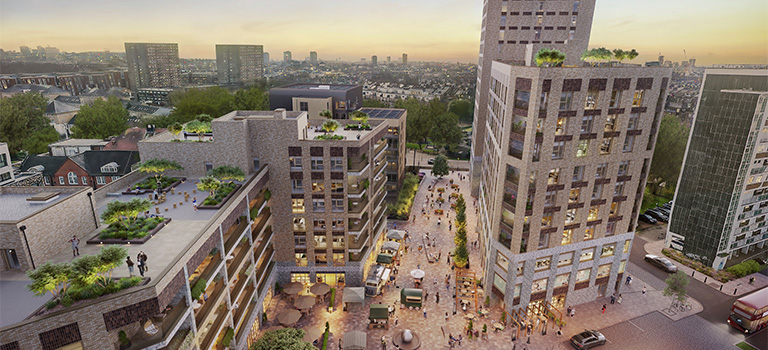- Selling
- Buying more
- Landlords more
- Renting
- New homes more
- House prices
- International services
International offices
China, Hong Kong SAR, India, Israel, Malaysia, Middle East, Pakistan, Qatar, Singapore, South Africa, Thailand and Turkey
Learn moremore - Contact
- News
- Contact
- About us
- My B&R
The law and letting
Rules and regulations
As part of our service we apprise you of the rules and regulations which landlords MUST comply with.
Fire
The landlord must ensure that specified items in the property comply with the Furniture and Furnishings (Fire) (Safety) (Amendment) Regulations 1993. If you fail in this respect you could be prosecuted.
Items covered by the regulations are:
Q. How can I check whether my furniture complies with the regulations?
A. Since 1990, all new furniture, except mattresses and bed-bases and loose and stretch covers for furniture, must have a permanent safety label, which sets out the standards met.
Q. Are there any exceptions to the Rules and Regulations?
A. Yes.
1) Furniture made or re-upholstered before 1950.
2) Any furniture in a property which the landlord regards as his home, and which is
let on a 'one-off' short-term basis.
Q. What would be considered a 'one-off' short-term let
A. For example, a letting while you are temporarily working away from home.
Items not covered by the regulations are:
Full details of the rules and regulations written in 1988 and the subsequent amendments made in 1993 are available on line:
1988 document - https://www.legislation.gov.uk/uksi/1988/1324/contents/made
1993 amendment - https://www.legislation.gov.uk/uksi/1993/207/contents/made
You can also obtain a copy of A Guide to the Furniture and Furnishings (Fire) (Safety) Regulations from any of the sales outlets operated by the British Standards Institution (BSI) or by post from the BSI at Linford Wood, Milton Keynes, MK14 6LE.
Safety
The following regulations cover appliances and fittings in all properties to be let:
Gas appliances
Under the Gas Safety (Installation and Use) Regulations 1994 it is the responsibility of the landlord to make sure that all gas fittings and flues are maintained in good order and checked for safety once in a period of twelve months by an engineer with a current CORGI licence.
Landlords are obliged to give tenants a copy of this Gas Safety Certificate within 28 days of the safety check being carried out, and are advised that the certificate to be retained for at least two years.
You should ALWAYS ensure that tenants are given instruction booklets for all gas appliances.
All appliances MUST be checked for safety before a tenancy begins and annually thereafter.
Q. Do I have to get the safety check done myself?
A. Yes, unless we manage the property, in which case we will handle this.
Q. Can I install a second hand gas appliance in my rental property?
A. No, not under any circumstances.
Q. Can I do any repairs myself?
A. No. Never attempt DIY repairs to any gas appliances.
Electrical appliances
Under the Electrical Equipment (Safety) Regulations 1994, landlords are responsible for making sure all electrical appliances are safe. To comply, all electrical installations MUST be regularly checked and serviced by a qualified electrician.
Smoke alarms
All properties built since June 1992 must have smoke alarms fitted at each level. Properties built before this date are exempt, however we strongly recommend that smoke alarms are fitted in all your properties.
The Housing Act 2004 Houses in Multiple Occupation
The law in relation to Houses in Multiple Occupancy (HMO) under the Housing Act 2004 has recently changed.
In summary:
A tenancy cannot be allowed to begin until such licence has been obtained.
Housing health & safety rating system
Where an HMO licence has been issued, the property will be subject to inspection within five years thereafter. Furthermore, any property, either let or available to let, can be visited by an inspector to assess potential hazards, e.g. poor insulation, dangerous staircases. Any Notice served following a visit must be implemented without delay.
The regulatory reform (fire safety) order 2005
This Order became effective from 1st October 2006 whereby an HMO must have:
a) Mains linked smoke detectors in the common parts (i.e. hallways).
b) Fire blankets and extinguishers in kitchens.
The age and character of the property, will determine further alterations that be required.
Q. My property is not an HMO. Am I governed by any of these regulations?
A. No, but we would strongly would recommend installation of a) and b) as above.
Disability discrimination act 1995
From December 2006, disabled persons have the right to ask a landlord for reasonable adjustments to a property to enable them to enjoy all amenities in the same way as an able-bodied person: such alterations are temporary and can be removed at the end of the tenancy.
Q. What sort of alterations might I be asked to make?
A. These could include, for example, a portable wheelchair ramp, changes to door handles, doorbells and taps.
Q. Who pays?
A. Reasonable adjustments are at the landlords expense.
Want to calculate your rental yield?
Try our calculatorHow much is your property worth?
PROperty+

Top 10 London property hotspots that investors need to watch out for in 2024
- Landlords News
- 25.01.24
- Benham and Reeves
London's dynamic property market pulsates with a unique energy, blending history, opportunity, and constant evolution, exciting investors with the promise of new horizons and substantial returns. We take a look at the top 10 London property hotspots for 2024, where regeneration initiatives, exceptional transport links, and flourishing developments converge to create lucrative investment opportunities. Here are some of the neighbourhoods shaping the future of London's real estate landscape. ...


















 dartmouthpark@benhams.com
dartmouthpark@benhams.com